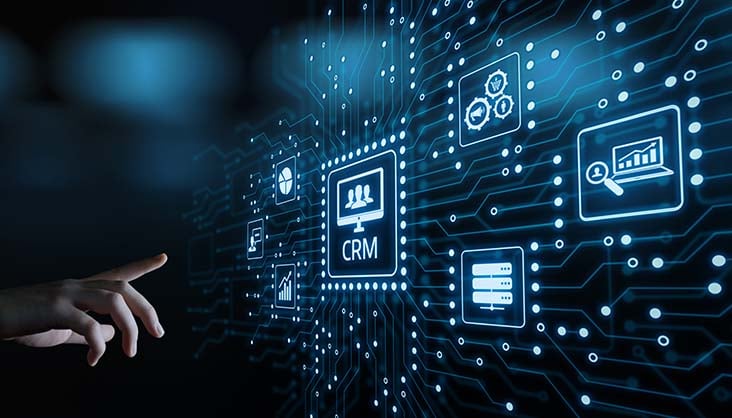Customer Relationship Management (CRM) has been a tool to manage business relationships with existing customers. The first CRM program was that of filing cards with customer details and supplements to note down each interaction. The advent of computers and its use in daily life saw the computerization of CRM. Over the span of last two decades, the focus on CRM has increased manifolds, all tribute to the ways in which business is moving towards a “digital” world.
This growing technological advancement and digital innovation, instrumental in defining the success of businesses is a trend that we cannot ignore. However, many businesses today are still hesitant to adopt the emerging technologies such as AI and Data Science. It is a perception that AI implementation isn't suitable for small or midsize companies due to the lack of resources and adequate funds.
Largely, CRMs try to address change basis B2B and B2C scenarios, apart from the sector for which a CRM is being deployed. Travel & Hospitality, unlike some other sectors, has a lot of inter-dependability and requires inter-operability for a seamless operation.
While the initial days of CRM revolved around reporting tools and left the analysis of those reports on the users, the next gen CRMs went a step further offering analytical tools which could visually tell the trends by means of charts and graphs. This made it little simpler for the decision makers to decide on the approach. Yet, the reliance was on human intelligence and the decision was dependent on how the person in charge would think of the situation.
Mark Twain once said, “Prophesy is a good line of business, but it is full of risks” human race has been predicting for time immemorial! And who wouldn’t want the CRMs to predict the future?
This will be driven by complex self-learning algorithms which will measure past responses and its success rate, analyze similar situations which the organization has faced in the past, evaluate each event leading up to the decision point, and recommend an ideal way forward attaching a score to it.
Today, a lot of data is available, the one generated by the user of the system and that coming from social media. All the data together helps understanding customer behavior, likes, dislikes, past decisions and at times even mistakes. The availability of high-quality data is the foundation for successful, productized AI. The principle of “Build Once — Use Many” is pivotal for maximizing the value of Data Assets.
Deploying Data Analytics over this infinite data coming from finite sources is considered as high-quality data. It helps in giving insights about the past decisions and gives a glance into the needs for the future. Thus, preparing the enterprise to handle the customer and growing business.
Yet, the core answers to what should be the next step in the sales cycle, how to close the deal, where will the next business come from, and which region or customer will offer the best margins are left to the judgement of the person handling the sales cycle and marketing in general.
AI-powered CRM will enable the use of pattern recognition to optimize segmentation and marketing messaging in real-time, resulting in a better experience and increased conversion. For example, automated up-selling will deliver the most relevant offers to a specific user via the best channel at the ideal time. The resulting engagement will then be analyzed and applied to the future communications with that specific user — as well as any relevant segment.
AI driven CRM will enable decision making based on the goals of the organization. As the AI industry moves fast from predictive to prescriptive, the enterprise solutions across industries will witness more slicing and dicing of data to enable accuracy. Hospitality industry will be no different and Analytics & AI in conjunction with CRM will be put to effective use to achieve business goals. From better customer experience to customer retention, CRM riding on AI and Data Analytics is the next big thing for the hospitality business worldwide.

